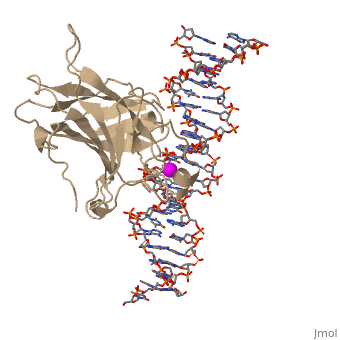Restoration Of P53 Tumor Suppressor Using Nanotechnology Helps Sensitize Cancer Cells For Treatment
Source: Thailand Medical News Dec 24, 2019 6 years, 1 month, 1 week, 3 days, 19 hours, 2 minutes ago
Onco-genetic investigators from the Brigham And Women’s Hospital by leveraging advancements in
nanotechnology, have found that restoring
p53 not only delays the growth of
p53-deficient liver and lung cancer cells but may also make tumors more vulnerable to
cancer drugs known as
mTOR inhibitors.
 p53
p53
In recent preclinical experiments, investigators restored
p53 using synthetic mRNA nanoparticles, making lung and liver
cancer cells susceptible to available
cancer drugs
P53, the tumor suppressor gene also known as the guardian of the genome, plays a critical function in preventing
cancer. Because of its powerful role, it is one of the most commonly compromised genes in
cancer.
Onco-genetic investigators have long sought a way to restore the activity of tumor suppressor genes such as
p53. Most recently, attention has turned to an approach developed at Brigham and Women's Hospital that uses
nanotechnology to deliver synthetic messenger RNA (mRNA). Leveraging advancements in
nanotechnology, investigators from the Brigham have found that restoring
p53 not only delays the growth of
p53-deficient liver and lung
cancer cells but may also make tumors more vulnerable to
cancer drugs known as
mTOR inhibitors. The team's findings are published in
Science Translational Medicine.
Co-corresponding author Dr Jinjun Shi, Ph.D., a faculty member in the Brigham's Center for Nanomedicine and Department of Anesthesiology told
Thailand Medical News, "
mTOR inhibitors have been approved for the treatment of certain types of
cancers but have not worked as well in clinical trials for many common
cancers. We present evidence here that using the lipid-polymer hybrid mRNA nanoparticle platform we've developed to restore
p53 may sensitize
cancer cells to
mTOR inhibitors. This represents a potentially powerful combination for
cancer treatment."
Dr Shi and colleagues, including co-corresponding authors Dr Omid Farokhzad, MD, MBA, (director of Brigham's Center for Nanomedicine) and Dr Wei Tao, Ph.D., (faculty in the Center), and first author Dr Na Kong, MD, used a redox-responsive nanoparticle platform to deliver
p53-encoding synthetic mRNA. The synthetic
p53 caused cell cycle arrest, cell death and delayed the growth of liver
cancer cells and lung
cancer cells in which
p53 had been depleted. In addition, synthetic
g> p53 made the cells more sensitive to everolimus, a drug which is an mTOR inhibitor. The team reports successful results in multiple in vitro and in vivo models.
Previous clinical trials of everolimus failed to show a clinical benefit in advanced cases of liver and lung cancer but found that response to the drug varied greatly between patients. Studies have also found that p53 is altered in approximately 36 percent of hepatocellular carcinomas (the most common form of liver cancer) and 68 percent of non-small cell lung cancers.
The research authors note that further preclinical development and evaluation will be needed to explore that translational potential and scalability of the approach as well as its applicability to other p53 mutations and other cancers.
The authors commented, "We expect that this mRNA nanoparticle approach could be applied to many other tumor suppressors and rationally combined with other therapeutic modalities for effective combinatorial cancer treatment."
Reference : Na Kong et al, Synthetic mRNA nanoparticle-mediated restoration of p53 tumor suppressor sensitizes p53-deficient cancers to mTOR inhibition, Science Translational Medicine (2019). DOI: 10.1126/scitranslmed.aaw1565
